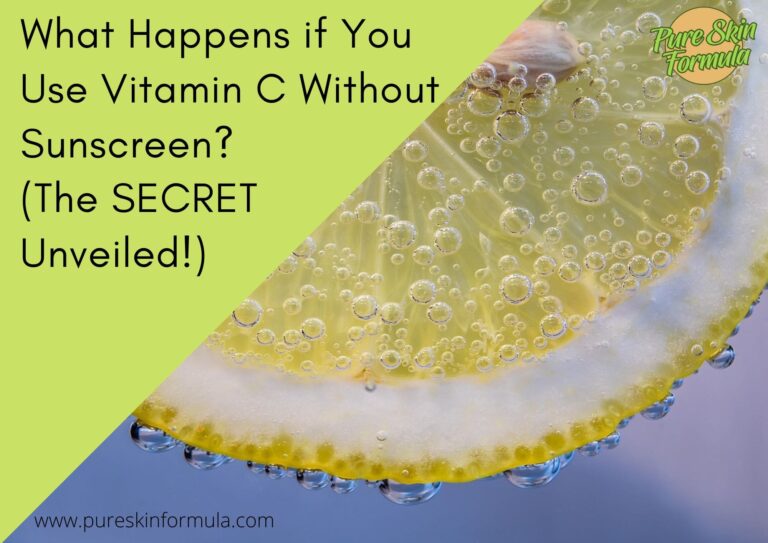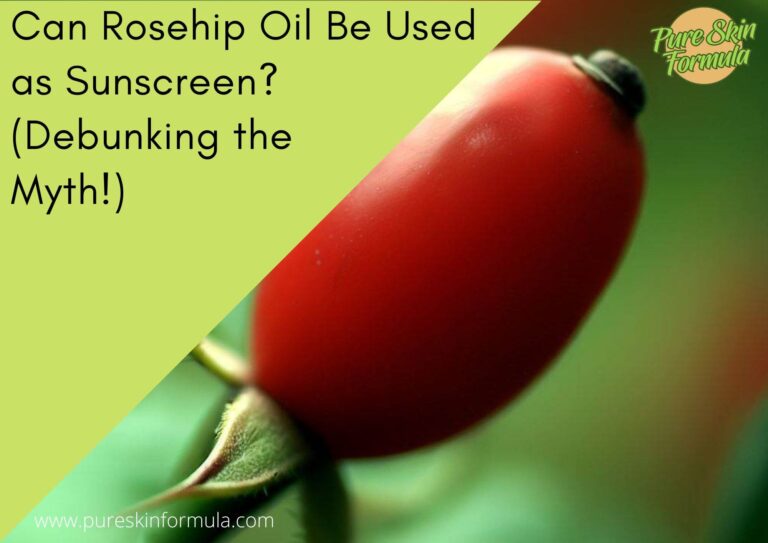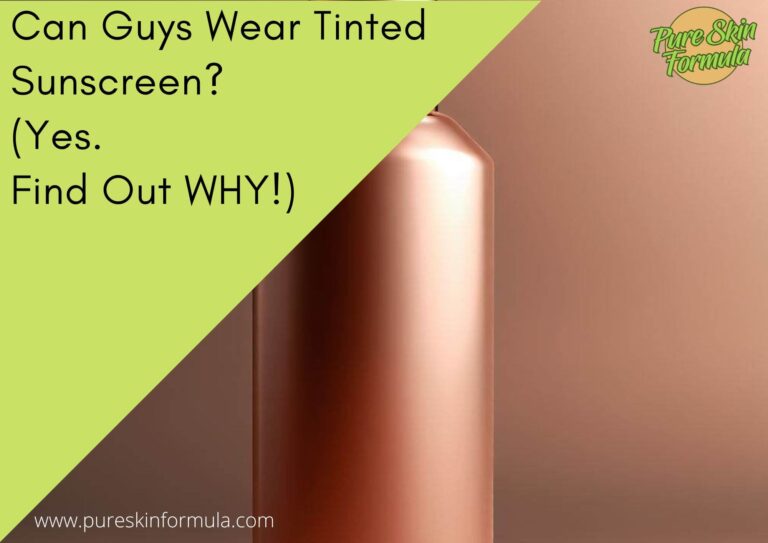Whether you’re seeking a more natural approach to skincare or curious about the moisturizing and protective properties of jojoba oil, this article will provide you with the information you need to make an informed decision about incorporating it into your sun protection routine.
So, join me as I delve into the science behind jojoba oil, its unique characteristics, and its potential role in safeguarding your skin from the harmful effects of the sun. Let’s unlock the secrets of jojoba oil as a sunscreen and discover if it’s the right choice for you.
Can jojoba oil be used as sunscreen?
You must rely on something other than jojoba oil as a standalone sunscreen. While this oil has some natural sun-protective properties, it does not have a scientifically proven Sun Protection Factor (SPF) rating.
SPF measures the level of protection against UVB rays, which cause sunburn and contribute to skin cancer. Without a defined SPF rating, it is difficult to determine the effectiveness of jojoba oil as a sunscreen.
Jojoba oil can be a supplementary measure alongside conventional sunscreens. It has moisturizing and nourishing properties that help keep the skin hydrated and prevent dryness caused by sun exposure.
Combining jojoba oil with a sunscreen that offers broad-spectrum protection against UVA and UVB rays can enhance moisturizing while ensuring proper sun protection.
Let’s analyze this topic further.
Understanding jojoba oil
Jojoba oil, pronounced ho-HO-ba, is derived from the seeds of the jojoba plant (Simmondsia chinensis). Interestingly, despite its name, jojoba oil is not an oil but a liquid wax.
The jojoba plant is native to the arid regions of the southwestern United States and Mexico, where indigenous communities have used it for centuries. Native Americans valued jojoba oil for its nourishing and healing properties.

What sets jojoba oil apart from other oils is its chemical composition, which closely resembles human sebum, the natural oil our skin produces. This similarity allows jojoba oil to be easily absorbed without clogging pores or leaving a greasy residue.
Jojoba oil is rich in essential fatty acids, including omega-9 and omega-6, as well as vitamins E and B-complex. It also contains antioxidants, such as tocopherols, that help combat free radicals and protect the skin from environmental damage.
Jojoba oil’s anti-inflammatory properties can help soothe irritated and inflamed skin conditions like eczema and rosacea. It is non-comedogenic and does not clog pores, making it suitable for acne-prone individuals. Jojoba oil can also act as a gentle exfoliant, helping to remove dead skin cells and promote a more radiant complexion.
Furthermore, jojoba oil’s antioxidant content helps fight oxidative stress, which can lead to premature aging and wrinkles. It aids in reducing the appearance of fine lines and promotes a more youthful and plump complexion.
What about SPF and sun protection?
You may have seen “SPF” mentioned on sunscreen bottles, but what does it mean? SPF stands for Sun Protection Factor, which indicates the level of protection a sunscreen provides against UVB rays.
UVB rays are responsible for sunburn and can contribute to skin cancer. The higher the SPF rating, the more sunscreen protects against these harmful rays. For instance, an SPF 30 sunscreen allows you to stay in the sun 30 times longer than you would without any protection before getting sunburned.
It filters about 97% of UVB rays, while an SPF 50 sunscreen filters about 98%.
Based on some scientific studies, different experts believe that jojoba has an SPF rating of 4.
Are there pros to using jojoba oil as sunscreen?
One of the key advantages of using jojoba oil as a sunscreen is its natural and organic nature. Jojoba oil is derived from the seeds of the jojoba plant and is free from synthetic chemicals and additives commonly found in commercial sunscreens.
For those who prefer a more natural approach to skincare, jojoba oil can be a desirable option.

Jojoba oil is renowned for its moisturizing and nourishing properties. When used as a sunscreen, it helps keep the skin hydrated and supple, preventing dryness caused by sun exposure.
Unlike some sunscreens that can leave the skin feeling dry or tight, jojoba oil creates a protective barrier that seals in moisture and promotes soft, smooth skin.
Another potential benefit of jojoba oil as a sunscreen is its antioxidant and anti-inflammatory properties. Antioxidants help protect the skin from free radicals, which can cause cellular damage and contribute to premature aging.
Additionally, the anti-inflammatory properties of jojoba oil may help soothe and calm the skin, reducing redness and irritation caused by sun exposure.
Jojoba oil is known for its lightweight and non-greasy texture, making it easy to apply and blend into the skin. Unlike some sunscreens that can leave a heavy or sticky residue, jojoba oil absorbs quickly and makes the skin comfortable.
It is also gentle and well-tolerated by sensitive skin types, minimizing the risk of irritation or allergic reactions.
Limitations and considerations of using jojoba oil as a sunscreen
One of the limitations of using jojoba oil as a standalone sunscreen is the need for a scientifically proven Sun Protection Factor (SPF) rating. Such is necessary to determine the effectiveness of jojoba oil in providing sufficient sun protection.
Skin types and sun sensitivity can vary. What works for one person may work differently for another. Some people may naturally have more sun-sensitive skin, while others may have a higher tolerance to sun exposure.
Factors such as skin tone, history of sunburn, and genetics can influence the level of sun protection needed. While jojoba oil may offer some natural sun-protective properties, it may only provide adequate protection for some, especially those with higher sun sensitivity.

Sunscreens need to be reapplied at regular intervals to maintain their effectiveness. However, the reapplication frequency and durability of jojoba oil as a sunscreen can be a concern.
Compared to commercial sunscreens formulated explicitly for prolonged sun exposure, jojoba oil may provide different long-lasting protection. To ensure continuous sun protection, it may require frequent reapplication, especially after sweating or swimming.
When relying on jojoba oil as a part of your sun protection routine, you could try additional measures to enhance sun protection. This includes seeking shade during peak sun hours, wearing protective clothing (such as hats and sunglasses), and using other sun avoidance strategies, like washing your face before sunscreen.
While jojoba oil can provide some benefits, it is a supplemental measure to be used with other sun protection practices for optimal sun safety.
Can you use jojoba oil in combination with sunscreens?
Combining jojoba oil with conventional sunscreens offers several benefits. Jojoba oil can enhance the effectiveness of sunscreens by providing an additional layer of hydration and nourishment to the skin.
It helps create a barrier that locks in moisture and prevents dryness caused by the sun or the drying effects of some sunscreen ingredients.
Combining jojoba oil with sunscreen lets you personalize your sun protection routine based on your skin’s specific needs and preferences. If you have dry or sensitive skin, adding jojoba oil can provide extra comfort and alleviate any potential dryness or irritation.

Furthermore, the customizable nature of jojoba oil allows you to adjust the amount you mix with your sunscreen depending on how much hydration or nourishment your skin requires.
By the way, it’s good to choose a high-quality, cold-pressed variant. Cold-pressed oils retain more natural properties and are less likely to contain additives or preservatives.
Consider blending jojoba oil with other natural ingredients known for their sun-protective properties. For example, you can mix in a few drops of carrot seed oil, which contains natural antioxidants and has a reputation for providing mild sun protection.
Alternatively, you can add a small amount of red raspberry seed oil, known for its potential UV-blocking properties. Combining can help create a personalized blend that works best for your skin.
It is good to conduct a patch test before using it. Apply a small amount of the diluted mixture (jojoba oil and any other ingredients) to a small area of the skin and observe for any adverse reactions.
Patch testing helps ensure that you don’t have any sensitivities or allergies to the ingredients. Monitor your skin’s reaction after initial and continued use to ensure it remains well-tolerated and doesn’t cause irritation or breakouts.
To wrap it up
While jojoba oil offers some natural benefits and can provide a layer of hydration and nourishment to the skin, it is not a substitute for a dedicated sunscreen with a scientifically proven SPF rating.
An established SPF rating for jojoba oil is needed to determine its effectiveness as a standalone sunscreen. However, combined with a broad-spectrum sunscreen, jojoba oil can enhance moisturization, provide a natural barrier, and personalize your sun protection routine.
Remember to consider your skin type, sun sensitivity, and the need for regular reapplication when incorporating jojoba oil into your sun protection regimen. Embrace the power of jojoba oil as a complementary skincare ingredient, but always prioritize comprehensive sun protection for your skin’s health and well-being.
Thank you for reading!
Valeria







